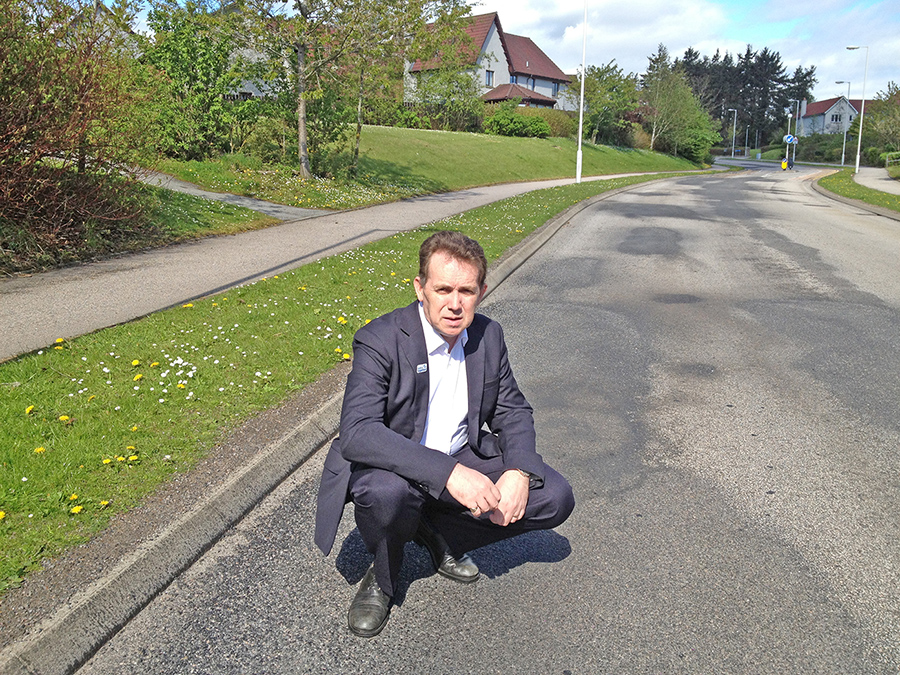
Aberdeen City Council has agreed to keep current developments on plastic roads firmly on its radar. This was agreed unanimously at the Operational Delivery Committee in response to Lib Dem Councillor Steve Delaney’s Notice of Motion.
In its most basic form, plastic was first used to fill potholes in India over 20 years ago, though the process was pretty basic at the time and has changed significantly over the years. One of the first main highways to include the use of plastic was constructed in Chennai, India in 2002 and it has yet to show any significant signs of wear or tear.
Since then technology has moved on and roads with plastic content have been in more common use in Australia and the USA for a number of years where they has proved to be more durable than traditional roads. Over the past five years this technology has been used to resurface 21,000 miles of roads in India.
A new proprietary product has been developed by a UK based company which promises much by way of longer lasting roads, but also taking into account environmental concerns. The process involves replacing bitumen in the asphalt mix with plastic pellets. Very little plastic is used but the result is a stronger, longer lasting road surface which is reputed to be less susceptible to potholes.
A number of trials of this product have already been undertaken with more to come. Dumfries & Galloway, Cumbria & Enfield councils have all carried out trials and Fife Council are said to be looking to trial this product. It has recently been used to resurface a major junction on the A6 and a section of the A7.
Steve said, “With ongoing financial challenges and the poor state of many of our roads, we really need to be open minded to products which may help reduce our costs and keep our roads in a much better condition for much longer.
“The use of new emerging technology is absolutely essential to the future growth and prosperity of the city but I’m sure everyone would agree we must first satisfy ourselves that the product is safe, environmentally friendly and offers the cost savings and durability promised.
“Clearly we need to recognise that we don’t have India’s climate nor indeed Australia’s, with potholes continuing to be a major issue on all our roads and the lifespan of of these roads being much less than in some other parts of the world. So it is essential that we satisfy ourselves that this product will deliver what it promises in in our colder climate”.
The committee agreed to continue to monitor trials of the product elsewhere in the UK and to gather more evidence relating to the durability, longevity and environmental credentials of this product. A further report will come back to committee when there is sufficient evidence to take an informed decision on the possible use of this product.
Steve added, “I truly believe this technology and products derived from it could represent a revolutionary breakthrough for the road construction industry and I was pleased to see the willingness of all councillors to embrace it as long as it proves to be an effective solution for the challenges we face maintaining our roads in Aberdeen”.
